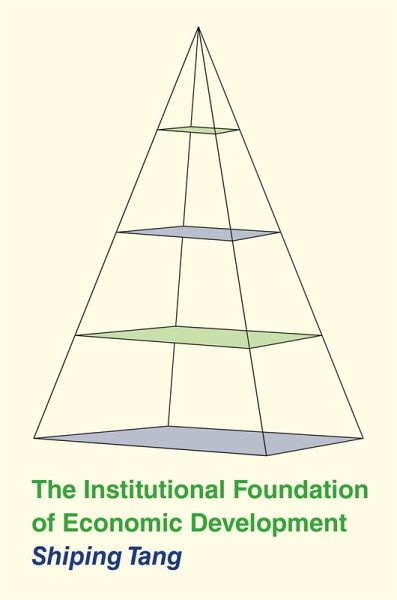
The Institutional Foundation of Economic Development (eBook, PDF)

PAYBACK Punkte
12 °P sammeln!
A systemic account of how institutions shape economic developmentInstitutions matter for economic development. Yet despite this accepted wisdom, new institutional economics (NIE) has yet to provide a comprehensive look at what constitutes the institutional foundation of economic development (IFED). Bringing together findings from a range a fields, from development economics and development studies to political science and sociology, The Institutional Foundation of Economic Development explores the precise mechanisms through which institutions affect growth.Shiping Tang contends that institutio...
A systemic account of how institutions shape economic development
Institutions matter for economic development. Yet despite this accepted wisdom, new institutional economics (NIE) has yet to provide a comprehensive look at what constitutes the institutional foundation of economic development (IFED). Bringing together findings from a range a fields, from development economics and development studies to political science and sociology, The Institutional Foundation of Economic Development explores the precise mechanisms through which institutions affect growth.
Shiping Tang contends that institutions shape economic development through four "Big Things": possibility, incentive, capability, and opportunity. From this perspective, IFED has six major dimensions: political hierarchy, property rights, social mobility, redistribution, innovation protection, and equal opportunity. Tang further argues that IFED is only one pillar within the New Development Triangle (NDT): sustained economic development also requires strong state capacity and sound socioeconomic policies.
Arguing for an evolutionary approach tied to a country's stage of development, The Institutional Foundation of Economic Development advances an understanding of institutions and economic development through a holistic, interdisciplinary lens.
Institutions matter for economic development. Yet despite this accepted wisdom, new institutional economics (NIE) has yet to provide a comprehensive look at what constitutes the institutional foundation of economic development (IFED). Bringing together findings from a range a fields, from development economics and development studies to political science and sociology, The Institutional Foundation of Economic Development explores the precise mechanisms through which institutions affect growth.
Shiping Tang contends that institutions shape economic development through four "Big Things": possibility, incentive, capability, and opportunity. From this perspective, IFED has six major dimensions: political hierarchy, property rights, social mobility, redistribution, innovation protection, and equal opportunity. Tang further argues that IFED is only one pillar within the New Development Triangle (NDT): sustained economic development also requires strong state capacity and sound socioeconomic policies.
Arguing for an evolutionary approach tied to a country's stage of development, The Institutional Foundation of Economic Development advances an understanding of institutions and economic development through a holistic, interdisciplinary lens.
Dieser Download kann aus rechtlichen Gründen nur mit Rechnungsadresse in A, D ausgeliefert werden.













